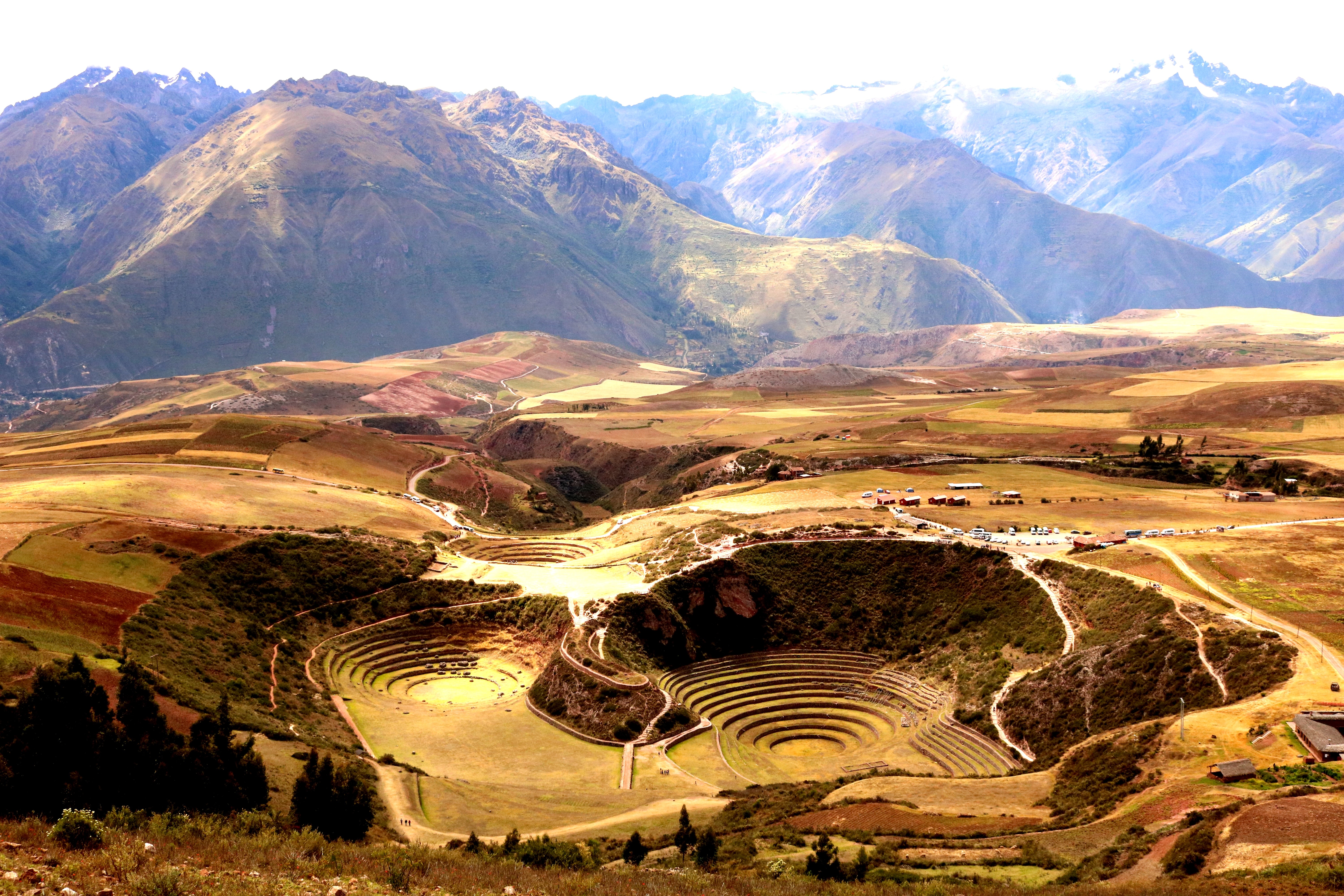VISION FOR THE ANTHROPOCENE | An environmentally sustainable and socially just economic transition

My vision for the Anthropocene is an empowered Asia-Pacific region.
Many countries most vulnerable to global environmental change in the Anthropocene are in the Asia-Pacific region. According to the Global Climate Risk Index, five of the ten countries most affected by extreme weather events in 2018 were in the Asia Pacific: Japan, the Philippines, India, Sri Lanka, and Fiji. If we extend this timeframe back to 1999 the number of Asia-Pacific countries in the top ten increases to six, with Myanmar, the Philippines, Vietnam, Bangladesh, Thailand, and Nepal included in the list. The Philippines, which happens to be my home country, is the only country that appears twice.
As a matter of sheer geographic coincidence, the Philippines is accustomed to tropical cyclones or typhoons, with an average of 20 hitting the country annually. In recent years, however, the intensity of these typhoons has increased due to warming oceans. The three strongest typhoons in recorded history occurred within the past decade, and all made landfall in the Philippines—home to 106 million people, 16.7% of whom live in poverty. In November 2020 alone, super typhoon Goni and Category-4 typhoon Vamco took 98 lives, affected 6.4 million people, and left almost $800 million in infrastructural and agricultural damages. The COVID-19 pandemic further complicates recovery plans as the government struggles to respond to 538,995 confirmed cases as of February 9, 2021.
The Asia-Pacific region is also home to low-lying island nations, developing economies, and low-income countries. Threatened by rising sea levels, the historical contribution of South Pacific Islands’ to greenhouse gas emissions are negligible compared to the industrialized economies of Western Europe and North America. At present, however, the Asia Pacific more broadly is the highest annual contributor to global emissions, with China, India, and Indonesia expected to contribute 89% of the region’s emissions by 2030. These countries now face international pressure to reduce greenhouse emissions while meeting the economic needs of their people. Half of the world’s poor live in just five countries, India and Bangladesh included.
The Asia Pacific is vulnerable yet culpable. Its peoples’ experiences of the Anthropocene are many and unequal.
One of the factors that has pushed the Earth system beyond the limits for human habitability is the consumption-driven and unlimited growth model of the world economy. This commodification of nature at a global scale has convinced some scholars to call this new geological epoch the Capitalocene. Although capital-driven economic development led to many improvements in human well-being, it also allowed environmental degradation that undermines human well-being. More than that, capitalism has also created vast inequalities in human societies where the marginalized and the poorest suffer the most when catastrophe strikes. These differentiated vulnerabilities can already be seen from the burning of forests in Indonesia to water scarcity in India and air pollution in China. Failure to recognize the disproportionate impact of global environmental changes perpetuates the historical injustice many of the countries in the region, especially the poor, marginalized, and indigenous communities, have experienced.
If humanity wishes to survive in the Anthropocene, it has to do away with its “anthropocentric, state-centric, and capital-centric” international order. But how can we move beyond an order whose very foundation rests on states and capital? The Asia-Pacific region can offer insights for resolving this dilemma.
As well as vulnerability, the region demonstrates agency in the Anthropocene. As the climate activists from the Pacific Islands proclaim, “We come from a people who have lived sustainably and in harmony with nature…we’re not drowning, we’re fighting.” Similarly, during one of the Conference of Parties to the UN Framework on Climate Change, the International Indigenous Peoples Forum on Climate Change stated: “[W]e reiterate the need for recognition of our traditional knowledge, which we have sustainably used and practiced for generations; and the need to integrate such knowledge in global, national and sub-national efforts.”
Contrary to modernist thinking that humans are separate from nature, indigenous communities still ascribe the ontology of human-nonhuman coexistence. On a local level, this ontology has long informed sustainable livelihood practices and adaptive management of resources—from the concept of ruwai (consciousness of all beings) among the Chewong people of Malaysian rainforest to the muyong (indigenous forest management) practices of the communities in the Cordillera Mountains of the Philippines.
Unfortunately, the demand side of the global economy and the capitalist virtue of unlimited growth have disrupted some of these ecologically grounded practices. Indonesian forests that are essential to small-scale subsistence farmers are now at alarming deforestation rates while supplying the consumption demands in China, Europe, and other developed countries.
Alternative economic models are gaining traction. Contrary to the traditional linear model of production, the circular economy maximizes resources by reusing, recycling, upcycling, and repairing products. China is developing practices that promote a circular economy, while several Asian cities are gradually adopting a circular approach to plastic production and use. Notwithstanding its limitations, a production that aims to extend product life and reduce waste is worth exploring amid a growing population, depleting resources, and increasing waste and pollution. In the context of COVID-19, a circular economy framework becomes even more necessary. This is an opportunity for China and other major economies in the region to exercise legitimate regional and global leadership by supporting and promoting these initiatives.
On a global level, the challenge for international organizations is to draw on sustainable knowledge and practices among indigenous communities without instrumentalising their agency and disrupting their independent flourishing. More recently, several international organizations (e.g., UNHCR, FAO, and ILO) have started recognizing the value of indigenous knowledge and practices for achieving not just environmental sustainability but also social and economic justice. The way forward is to appropriate the recommendations of existing international bodies and frameworks into community-level contexts in order to bridge global action and local capacity.
Ensuring an environmentally sustainable and socially just economic transition for countries and communities will be driven by local, national, and global initiatives. States will continue to play a crucial role in implementing domestic policies and forging multilateral action for an ecologically aligned rather than a growth-driven global economy. International and local non-governmental organizations can amplify marginalized voices and work with indigenous communities to protect sustainable livelihood practices. For a truly sustainable future, these initiatives need to be open to public debate, ecologically grounded, dynamic to changing human-nature interactions, considerate of future generations, and integrated with societal values, such as justice and equity.
The challenges in the Anthropocene are all too great, requiring great solutions. How we respond to these challenges should not only reflect the differences among humankind; it should also eliminate social injustices and economic inequalities once and for all.
Dahlia Simangan
Dr. Dahlia Simangan is an Assistant Professor of Peace Studies at Hiroshima University and a Member of the Planet Politics Institute. She was a former Japan Society for the Promotion of Science Postdoctoral Research Fellow at the United Nations University in Tokyo. She received her PhD in International, Political, and Strategic Studies from the Australian National University, an MA in International Relations from the International University of Japan, and a BA in Sociology from the University of the Philippines. Her research interests include topics on post-conflict peacebuilding, the peace-sustainability nexus, and peace and security in the Anthropocene. She has published her research in International Affairs, International Peacekeeping, and Third World Quarterly, among other journals, and is the author of International Peacebuilding and Local Involvement: A Liberal Renaissance (Routledge, 2019).



